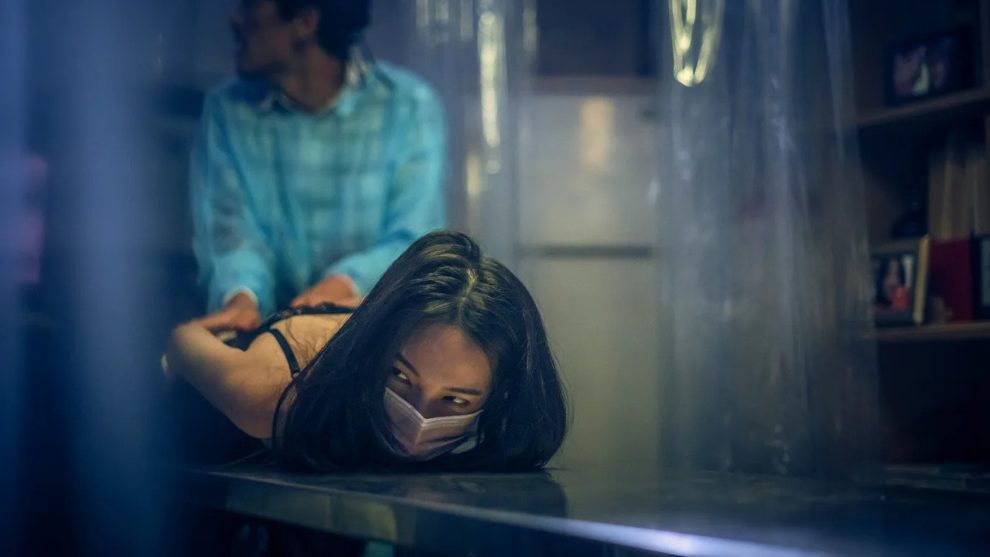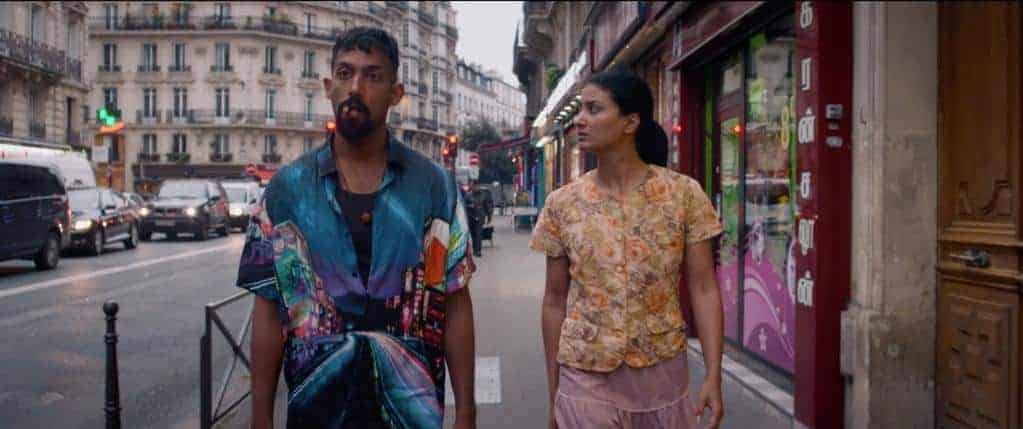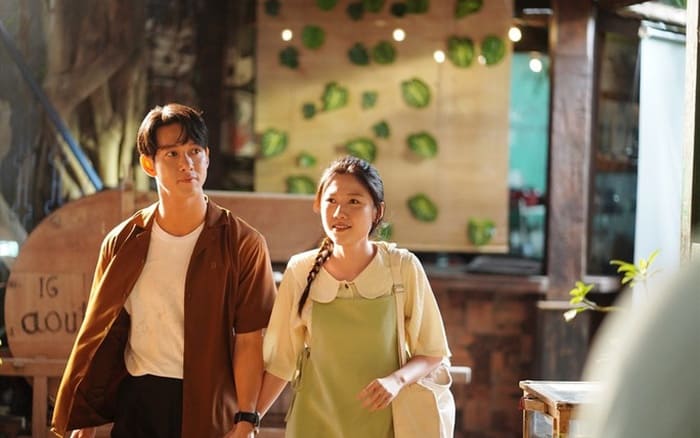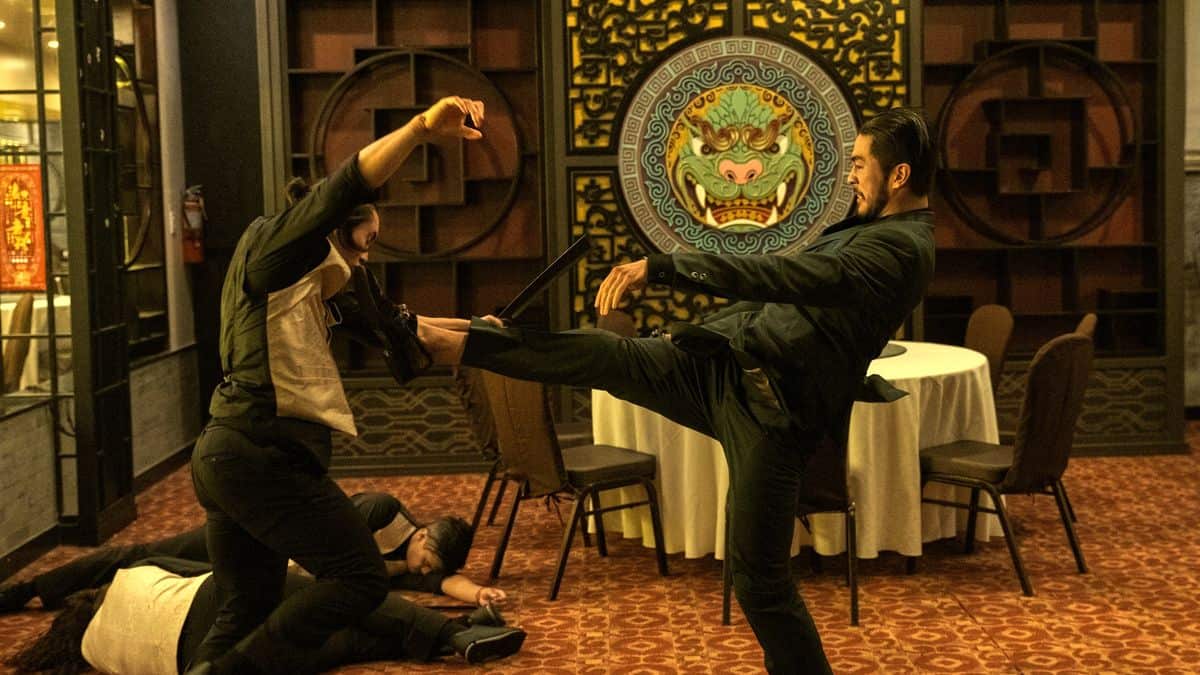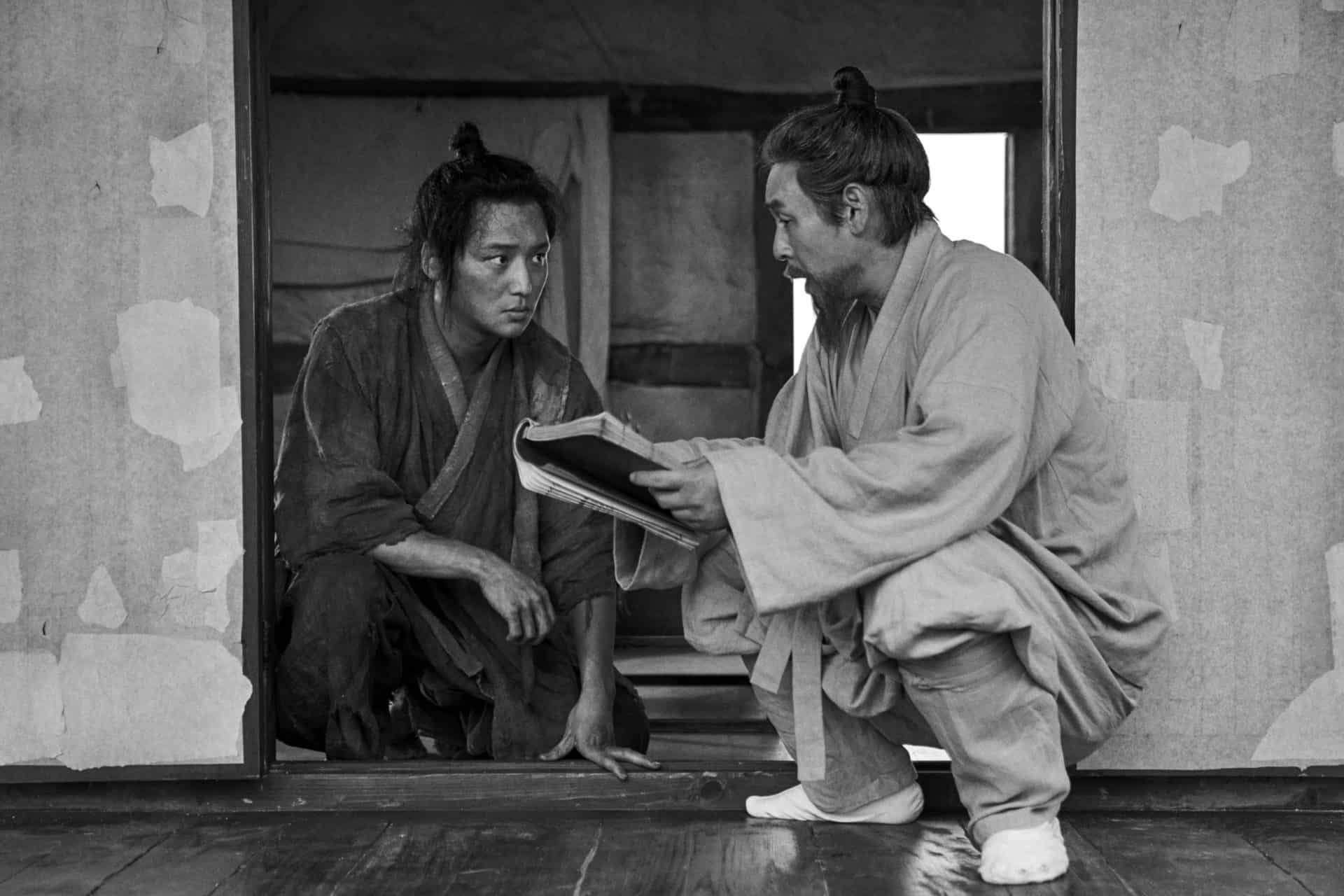Inspired by actual news stories from Geylang, Singapore's red light district, “Geylang” is a rather unusual for the country neo-noir gritty crime thriller, with Boi Kwong trying to move somewhere between the styles of Kim Jee-woon and Johnnie To.
Geylang is screening at International Film Festival Rotterdam

The story takes place within one night, on the eve of a parliamentary nomination day. Fatty, a pimp who also has to take care of his demented elderly father, is in trouble, since he owes money to the mob, and a goon soon knocks on his door, with his father deciding to act just at that moment, creating even more problems for his son. Shangri-La, a very beautiful sex worker and girlfriend to Jie, a cigarette-seller, finds herself abducted by a mysterious doctor who is trying to save his daughter. Celine, a woman's welfare lawyer is also the wife of a political candidate, but finds herself in direct collision with him when he asks her to step down from her doings during the election, eventually leaving the house they live together. An orange bag with money changes hands a number of times during the night, while the lives of all the aforementioned are eventually revealed to be connected.
The first thing one will notice in the movie is the rather impressive visuals, with DP Ronnie Ching making the most of the underbelly of the particular area, which is both intensely lighted in neon, and filled with darkness and shadows. In combination with Abdul Samad Jaffar and the overall coloring, the images presented here are a treat to the eye, even if the settings mostly revolve around whore houses, “underground” medical facilities, and cheap cramped apartments. Furthermore, the way the action scenes are both choreographed, with Sunny Pang receiving a nomination for Best Action Choreography in the Golden Horse Awards, captured and edited by Neo Rui Xin and Jacen Chan, adds even more to the eye-candy approach here, with the aforementioned being among the best assets of the movie.

The effort to combine the crime-thriller aesthetics of Kim Jee-woon's movies, and the slightly nonsensical, non-stop approach of Johnnie To's action was a difficult feat from the beginning, and the result, is not exactly ideal, particularly since the movie seems to suffer in the writing department. In that fashion, the individual episodes are all quite good, but the connection between them is highly unrealistic, as much as the fact that some of the protagonists do not seem to die, no matter how many times they get hurt.
Granted, this style of storytelling was prevalent during the 80s and 90, but nowadays seems rather far-fetched, in an aspect that definitely harms the movie, particularly since Boi Kwon evidently wanted to make a comment regarding how even people who seem evil, could have some justification for their actions. Considering that this “gray area” comment is realistic actually, the approach here makes even less sense, with the many episodes and characters looking more like a collage of ideas than a compact narrative. Furthemore, the flashbacks end up being disorienting rather than explaining more, essentially adding to the lack of believability regarding the story.
What saves the movie, to some extent at least, is Mark Lee's acting as Fatty, who tries to survive a hellish night while having to take care of his father, who is even shitting himself, at least when he is not disappearing or stabbing people. Sheila Sim as Celine is also captivating in the way she suffers, gets revenge, and is “dismantled”, while gorgeous Patricia Lin as Shangri-La adds a very welcome sense of sensualism in the movie, and is quite convincing in a kind of victim/scream queen/femme fatale combination.
“Geylang” is one of those movies that the wrap is better than the actual product, but in the end, definitely deserves a watch for its visuals and actions, particularly for people who cherish the action movies of the 80s and 90s.


